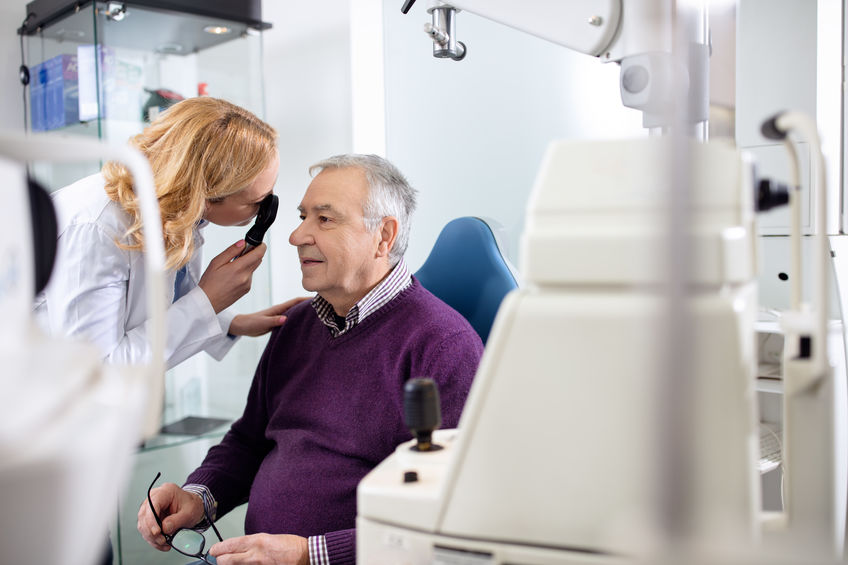
Understanding Cataracts
Our bodies go through a lot of changes as we age, including our vision. In fact, according to the Centers for Disease Control and Prevention, nearly 12 million people aged 40 and older have a vision impairment. One of the most common age-related vision impairments is cataracts, affecting almost half of all adults by 80, according to Prevent Blindness America. June is Cataract Awareness Month. It’s an excellent time to learn about cataracts and how to prevent them.
What are Cataracts?
The eyes have a transparent lens behind the iris. This lens focuses light and allows you to see. Cataracts are when that lens becomes foggy and causes blurry vision or vision loss. Cataracts develop when the proteins that make up the lens break down and linger in the eye. In addition to blurry vision, cataracts can also cause sensitivity to light, glares, double vision, or changes in the way you see color.
Cataracts are relatively common and can develop in one or both eyes. People generally start developing cataracts around the age of 40. However, because cataracts develop slowly, many people don’t notice symptoms until they are 60 or older. You’re more likely to develop cataracts if you smoke, drink excessively, live somewhere with poor air pollution, or have a family history of cataracts. Additional risk factors include diabetes, eye injuries, or certain medications such as chlorpromazine or steroids.
Preventing Cataracts
The breaking down of proteins in your eye’s lens is a natural part of aging. While it’s challenging to prevent cataracts completely, there are steps you can take to maintain your overall eye health.
- Make lifestyle changes for better overall health. Habits such as smoking or excessive drinking put you at significant risk for developing cataracts. If you’re having trouble quitting smoking or drinking, talk to your doctor about treatment options.
- Get routine eye exams. Cataracts develop slowly, so if you’re getting regular eye exams, your doctor can spot and treat cataracts early to reduce the severity of symptoms.
- Keep your eyes safe. Previous eye injuries increase the risk of cataracts, so be sure to keep your eyes safe with protective eyewear whenever you’re doing an activity that could harm your eyes. It would help if you also kept your eyes safe from the sun by wearing sunglasses or wide brim hats on sunny days.
- Reduce your screen time.
- Eat a well-balanced diet.
Treating Cataracts
Some cataracts may only cause mild vision impairment that you can manage with prescription eyewear. Other cataracts causing serve vision blurriness may need surgery. There are two main types of cataract surgeries:
- Phacoemulsification cataract surgery- Most people undergo phacoemulsification cataract surgery, which uses ultrasound or lasers to break up and remove the cataract. The doctor then replaces the cloudy lens with a new one.
- Extracapsular cataract surgery- If the cataract is too dense or breaks apart easily, your doctor may suggest extracapsular cataract surgery. Instead of breaking up the cataract, the doctor will remove the cataract in one piece, then replace it with a new lens.
It takes about eight weeks to recover from cataract surgery fully. In the first few days, you may experience itching, mild discomfort, watery eyes, light sensitivity, and blurry vision. While your eye is healing, you must do your best to avoid touching your eyes or doing anything that could injure your eye.
How Visiting Angels Can Help
If you or a loved one is living with cataracts or another vision impairment and needs assistance around the home, the team at Visiting Angels Augusta, GA is happy to help. Our caregivers provide a range of services, including light housekeeping, meal preparations, medication reminders, and personal grooming. We can also provide transportation to and from doctor’s appointments and help seniors transition back hope after surgery. Our Augusta office serves those in Augusta, Evans, Martinez, and the surrounding Georgia communities. If you’d like to learn more about our services, you can complete this form or give us a call at 706-955-4220.
